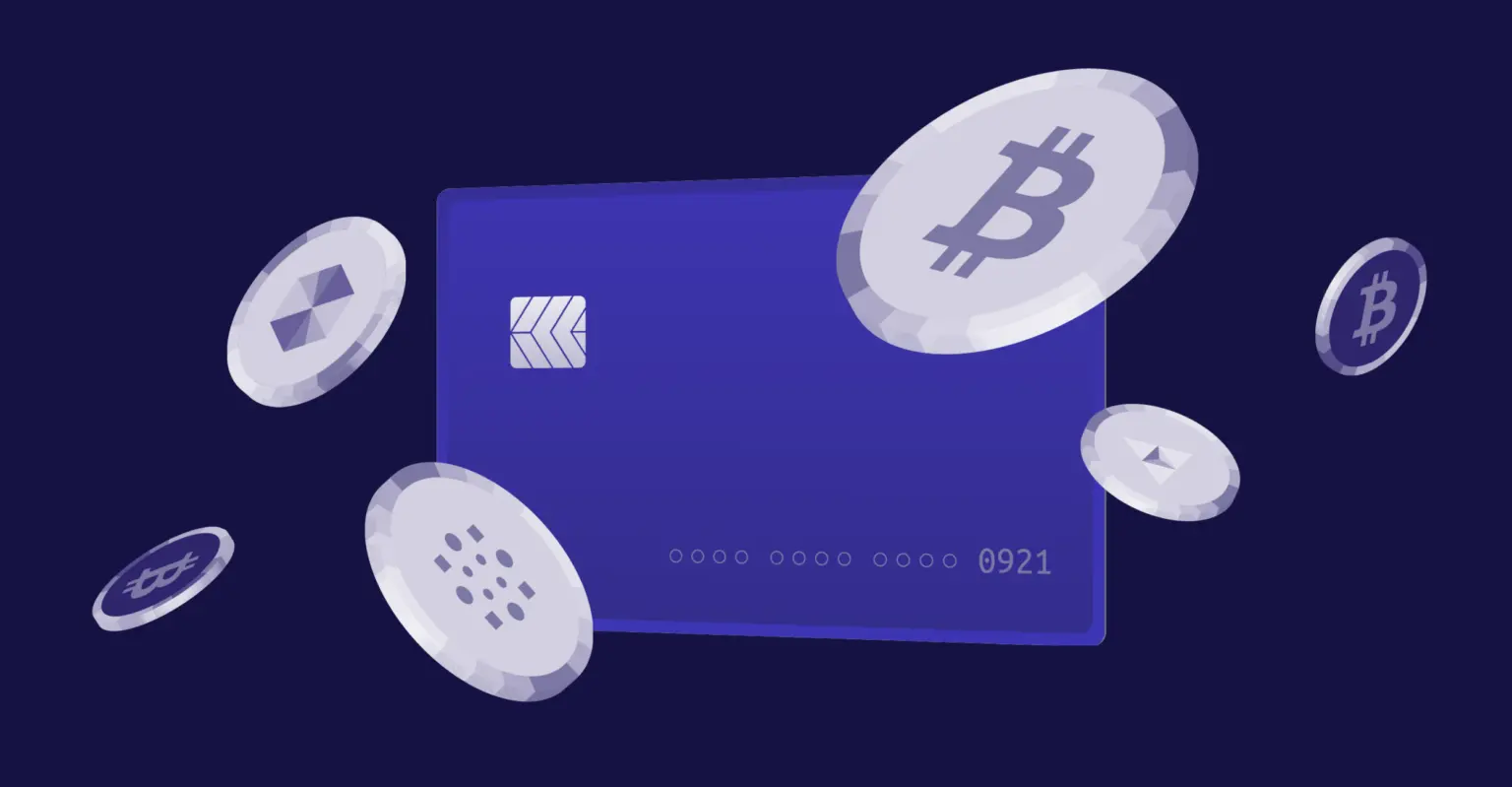Best Crypto Exchanges in USA: Complete 2026 Guide with Security Rankings

The best crypto exchanges in the USA for 2025 include Coinbase Pro, Kraken, Gemini, and Binance.US, ranked by security, fees, features, and regulatory compliance.
Choosing a crypto exchange shouldn't feel like playing Russian roulette with your money. Yet that's exactly what many people do - they pick the first exchange they hear about without checking if it's actually safe or legitimate.
The FTX collapse wiped out billions in user funds overnight. Mt. Gox is still paying back victims from a hack that happened over a decade ago. These disasters didn't happen because of bad luck - they happened because users trusted centralized platforms without understanding the risks.
After watching traditional banks fail like Silicon Valley Bank and seeing how centralized exchanges can implode, smart investors are getting more careful about where they trade. Some are even moving toward self-custody and DeFi alternatives, but most people still need exchanges to convert between crypto and dollars.
The key is picking exchanges that won't disappear with your money. This guide ranks the safest, most reliable options for US investors based on security, regulatory compliance, and track record.
2025 US Crypto Exchange Landscape Overview
The US crypto exchange market has changed dramatically since 2022. Regulatory crackdowns eliminated sketchy operators while legitimate exchanges strengthened their compliance and security measures.
Regulatory Environment and Compliance
US crypto exchanges now operate under intense regulatory scrutiny. The SEC, CFTC, and state regulators all have opinions about how exchanges should work, creating a complex compliance environment.
Exchanges that survive this regulatory gauntlet tend to be more stable and trustworthy. They've invested heavily in legal compliance, which reduces the risk of sudden shutdowns or asset freezes.
The downside is higher costs and fewer exotic trading features. But most investors prefer boring compliance over exciting bankruptcy proceedings.
Security Standards and Insurance
Modern US exchanges implement military-grade security measures that would have seemed paranoid five years ago. Multi-signature wallets, cold storage, and insurance coverage are now standard features.
The best exchanges keep 95% or more of customer funds in offline storage where hackers can't reach them. They also carry insurance policies that cover potential losses from security breaches.
However, insurance doesn't cover everything. User error, phishing attacks, and general market losses aren't protected. The safest approach is still moving funds to your own wallet after trading.
Top 10 US Crypto Exchanges Ranked
These rankings consider security, fees, ease of use, and regulatory compliance. Each exchange has strengths and weaknesses depending on your specific needs.
#1 Coinbase Pro - Best for Beginners
Coinbase Pro offers the perfect combination of simplicity and professional features. The interface is clean enough for beginners but powerful enough for serious traders.
Security is top-notch with 98% of funds stored offline and comprehensive insurance coverage. The exchange has never suffered a major hack, giving it the best security track record among major platforms.
Fees are reasonable at 0.5% for makers and takers, though not the cheapest available. The real value is peace of mind and regulatory compliance that institutional investors trust.
Customer support actually responds to tickets, unlike many competitors. The mobile app works smoothly and includes all essential trading features.
#2 Kraken - Best Security Features
Kraken pioneered many security features that other exchanges later copied. They offer the most comprehensive security options including hardware key support and advanced withdrawal protection.
The exchange has operated since 2011 without major security incidents. Their cold storage system and multi-signature requirements set industry standards for fund protection.
Trading fees start at 0.26% and decrease with volume. The interface takes some getting used to but offers powerful charting and order types for active traders.
Customer service quality varies, but security-conscious users appreciate Kraken's paranoid approach to fund protection.
#3 Gemini - Best for Institutions
Gemini was built from day one to serve institutional clients and high-net-worth individuals. The Winklevoss twins created an exchange that prioritizes regulatory compliance above everything else.
Security features rival Kraken with the added benefit of being regulated as a trust company in New York. This provides extra legal protections that most exchanges can't offer.
The interface is polished and professional without unnecessary complexity. Trading fees are competitive at 0.35% for most users, with discounts for high-volume traders.
Gemini's conservative approach means fewer available cryptocurrencies than competitors, but the ones they list are thoroughly vetted.
#4 Binance.US - Best Trading Features
Binance.US offers the most advanced trading features available to US customers. The platform includes spot trading, futures, options, and lending services in one interface.
The selection of available cryptocurrencies is extensive, including many altcoins not available on other US exchanges. Trading fees are among the lowest at 0.1% with BNB discounts.
Security is solid though not quite as paranoid as Kraken or Gemini. The exchange uses standard cold storage and two-factor authentication requirements.
The main downside is complexity that can overwhelm new users. The interface has dozens of features that most people don't need.
#5 FTX.US - Best for Advanced Traders
Update: FTX.US ceased operations in November 2022 following the collapse of FTX International. This exchange is no longer recommended and serves as a reminder why exchange selection matters.
#6 KuCoin - Best Altcoin Selection
KuCoin offers the largest selection of altcoins available to US traders. If you're looking for small-cap gems or newly launched projects, KuCoin probably has them.
The exchange operates globally but accepts US customers in most states. Trading fees are competitive at 0.1% for both makers and takers.
Security is decent though not exceptional. The exchange suffered a hack in 2020 but quickly resolved it and improved security measures afterward.
The interface can be overwhelming due to the sheer number of available trading pairs. Customer support is hit-or-miss, especially for US customers.
#7 Crypto.com - Best Mobile App
Crypto.com built their platform mobile-first, resulting in one of the smoothest trading apps available. The interface is intuitive enough for complete beginners yet includes advanced features.
The exchange offers competitive fees starting at 0.4% with significant discounts for CRO token holders. Staking rewards and credit card cashback add extra value for regular users.
Security follows industry standards with cold storage and insurance coverage. The exchange has a clean track record without major security incidents.
The main limitation is fewer available cryptocurrencies compared to platforms like KuCoin or Binance.US.
#8 Bittrex - Best for Security
Bittrex focuses on security above all else, implementing some of the most stringent verification and withdrawal procedures in the industry. This makes it slower to use but much safer.
The exchange has operated since 2014 without suffering major hacks or fund losses. Their conservative approach to security and compliance has paid off in terms of user trust.
Trading fees are higher than competitors at 0.75%, reflecting the extra security measures and regulatory compliance costs.
The interface is functional but dated compared to newer exchanges. Advanced traders might find it lacking in features and charting tools.
#9 Huobi Global - Global Access
Huobi offers US customers access to global crypto markets with a wide selection of trading pairs and advanced features.
The platform includes spot trading, futures, and DeFi services in one interface. Trading fees are competitive with volume-based discounts available.
Security is adequate though the exchange has faced regulatory challenges in various jurisdictions. US users should be aware of potential access restrictions.
Customer support for US customers is limited, making it better suited for experienced traders who don't need hand-holding.
#10 Bisq - Best Decentralized Option
Bisq operates as a peer-to-peer trading network rather than a traditional centralized exchange. This eliminates counterparty risk at the cost of convenience and liquidity.
The platform connects buyers and sellers directly without holding customer funds. Trades are secured through multi-signature escrow and dispute resolution systems.
Fees are minimal since there's no central operator taking profits. The main costs are Bitcoin network fees for the underlying transactions.
The interface is complex and requires technical knowledge to use safely. Liquidity is limited compared to centralized exchanges, making large trades difficult.
Exchange Comparison Matrix
Here's how the top exchanges compare across key metrics:
Security Rankings:
- Kraken - Comprehensive security features
- Gemini - Trust company regulation
- Coinbase Pro - Strong track record
- Bittrex - Security-focused approach
- Crypto.com - Industry standard measures
Fee Comparison (Maker/Taker):
- Binance.US: 0.1%/0.1%
- KuCoin: 0.1%/0.1%
- Kraken: 0.16%/0.26%
- Gemini: 0.25%/0.35%
- Coinbase Pro: 0.5%/0.5%
Cryptocurrency Selection:
- KuCoin: 400+ cryptocurrencies
- Binance.US: 150+ cryptocurrencies
- Kraken: 100+ cryptocurrencies
- Coinbase Pro: 200+ cryptocurrencies
- Gemini: 100+ cryptocurrencies
Fee Structure Analysis
Exchange fees vary significantly based on trading volume, payment method, and account type. Most exchanges offer volume discounts that can substantially reduce costs for active traders.
Maker fees (adding liquidity) are typically lower than taker fees (removing liquidity). Some exchanges offer zero maker fees to encourage market making.
Don't forget about deposit and withdrawal fees, which can add up quickly. Bitcoin withdrawals can cost $10-50 depending on network congestion and exchange policies.
Security Features Comparison
All major exchanges now offer basic security features like two-factor authentication and cold storage. The differences lie in advanced features and implementation quality.
Hardware key support, withdrawal whitelisting, and time-delayed withdrawals provide extra protection for security-conscious users. Some exchanges offer these features while others focus on convenience.
Insurance coverage varies widely between exchanges. Some cover all customer funds while others only protect against specific types of losses.
Supported Cryptocurrencies
The number of supported cryptocurrencies ranges from around 50 on conservative exchanges to over 400 on platforms like KuCoin.
More options aren't always better. Exchanges with smaller selections often have stricter listing requirements, potentially reducing the risk of scam projects.
Consider whether you need access to obscure altcoins or if major cryptocurrencies meet your needs. Most successful crypto portfolios focus on established projects rather than speculative altcoins.
How to Choose the Right Exchange for You
Picking the right exchange depends on your specific needs, experience level, and risk tolerance.
For beginners: Coinbase Pro offers the best combination of simplicity and security. The interface is approachable while still providing professional trading features.
For security-focused users: Kraken or Gemini provide the most comprehensive protection against hacks and fund losses.
For active traders: Binance.US offers the most advanced features and lowest fees for frequent trading.
For altcoin investors: KuCoin provides access to the widest selection of smaller cryptocurrencies.
Consider starting with a mainstream exchange like Coinbase Pro or Kraken, then expanding to others as your needs become more specific.
Security Best Practices for Exchange Users
Even the most secure exchange can't protect you from your own mistakes. Following basic security practices prevents most fund losses.
Enable two-factor authentication on every account using an authenticator app rather than SMS. Phone numbers can be hijacked while authenticator apps require physical device access.
Use unique, strong passwords for each exchange account. Password managers make this easy while eliminating the temptation to reuse passwords.
Withdraw funds to your own wallet after trading. Exchanges are honeypots for hackers - don't leave money there longer than necessary.
Verify withdrawal addresses carefully before sending funds. Cryptocurrency transactions are irreversible, so double-checking addresses prevents costly mistakes.
Keep small amounts on exchanges for active trading while storing larger holdings in hardware wallets or other cold storage solutions.
Regulatory Considerations in the US
US crypto regulations continue evolving rapidly. Exchanges that operate legally today might face restrictions tomorrow based on changing regulatory interpretations.
State-by-state restrictions affect which exchanges you can use. Some states have banned certain platforms while others welcome crypto businesses.
Tax reporting requirements vary by exchange. Most major platforms provide tax documents, but you're responsible for accurate reporting regardless.
Banking relationships influence which exchanges can offer USD deposits and withdrawals. Regulatory pressure has forced some exchanges to limit banking services.
Stay informed about regulatory changes that might affect your preferred exchanges. Having accounts on multiple platforms provides backup options if regulations force closures.
Ready to move beyond centralized exchanges? Learn how Decentralized Masters members use the ABN System to reduce dependence on traditional platforms while building wealth through decentralized finance.
Frequently Asked Questions
Can I use multiple exchanges?
Yes, using multiple exchanges provides backup options and access to different cryptocurrencies. Just manage security carefully across platforms.
Which exchange has the lowest fees?
Binance.US and KuCoin offer the lowest trading fees, but consider other factors like security and customer support.
How do I transfer crypto between exchanges?
Send from one exchange's withdrawal feature to another exchange's deposit address. Always test with small amounts first.
Should I keep crypto on exchanges long-term?
No, exchanges are meant for trading, not storage. Move funds to your own wallet for long-term holding.
What happens if my exchange gets hacked?
Results vary by exchange. Some have insurance that covers losses while others expect users to bear the cost of security breaches.
Can crypto exchanges freeze my account?
Yes, exchanges can freeze accounts for compliance reasons, suspicious activity, or regulatory requirements. This is why self-custody is important.
Do I need to pay taxes on crypto exchange trades?
Yes, every trade is a taxable event in the US. Keep detailed records and consider using tax software to track transactions.
Which crypto exchange is safest in the USA?
Kraken and Gemini have the strongest security features, while Coinbase Pro has the longest track record without major incidents.




